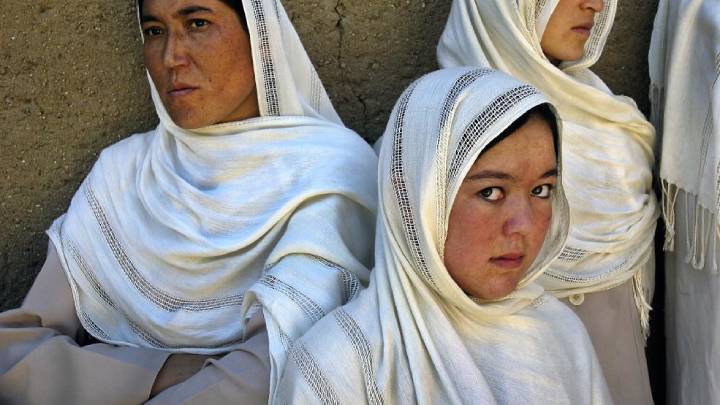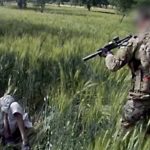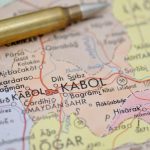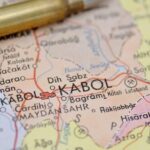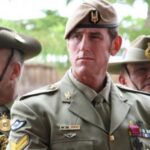The US and Australia Leave Power Vacuum in Afghanistan for the Taliban to Fill

After the US, Australia and other allies overthrew Taliban rule early on following the invasion of Afghanistan in October 2001, the Islamic militants have easily swept back into power in a matter of months after Washington announced its withdrawal, with Kabul having fallen on Sunday.
Images of Taliban leaders occupying the presidential palace in the capital of Kabul have emerged, signalling that the US-sponsored Ghani government is no more. And this has left Afghan citizens fearful that the return will see the reimplementation of the brutal regime it ran two decades ago.
The repressive Taliban rule of 1996 through to 2001 was particularly harsh for women and girls, as they were silenced and confined to their homes. And while the group has announced that a repeat to such oppression won’t be forthcoming, most consider there will be an attempt to reinstate it.
Chaotic scenes of foreign nationals and local allies evacuating from Kabul International Airport on Monday were reminiscent of the 1975 fall of Saigon – now Ho Chi Minh City – after the US was defeated in the prolonged conflict in Vietnam. Washington had withdrawn its troops two years prior.
In April this year, the Biden administration announced the full withdrawal of US troops from Afghanistan by September 11.
And as the region falls to Taliban rule a month prior to the slated pull out, commentators globally are asking whether there was any real justification for the foreign occupation besides stoking the coffers of the US arms industry.
Questionable intentions
The two decade-long conflict in Afghanistan was the longest war Australia and the United States have ever known. The human cost has been in the tens of thousands, which included the lives of over 47,000 Afghan civilians.
The Bush administration commenced its invasion of Afghanistan on 7 October 2001, less than a month after the September 11 terror attacks in New York saw two planes careen into the World Trade Centre buildings.
This assault on US soil was the stated reason for the taking of Afghanistan. Washington insisted that under the Taliban, the Central Asian nation had become a hotbed for terrorist networks and, therefore, US forces were invading to potentially locate the 9/11 masterminds.
However, there were widespread assertions that the Bush administration was more interested in constructing a pipeline through Afghan territory, which would have provided western markets with access to oil from the Caspian Basin.
And there were also reports coming out of Europe that suggested Washington had been contemplating an invasion of Afghanistan prior to 9/11, and the subsequent easy toppling of Taliban forces was evident of longer planning.
The fall of Phnom Penh
The withdrawal of US troops from Afghanistan is not the first time Washington has abandoned a nation it invaded to a political power vacuum ready to be filled by a brutal and authoritarian local regime.
A similar situation occurred in Cambodia in the mid-1970s, when the Khmer Rouge took power and subsequently perpetrated a genocide that led to the deaths of between 1.5 and 2 million Cambodians.
As it continued the US war in Vietnam, the Nixon administration commenced secretly bombing Cambodia in March 1969, as, despite the nation being a neutral country during the conflict, North Vietnamese troops were moving supplies through its territory.
The US had been carpet bombing Laos for the same reason since 1964, making it the most heavily bombed country per capita on the planet. That nation is still to be littered with unexploded weapons, which continue to claim the lives of about 500 locals annually.
Nixon commenced a ground invasion of the Cambodian nation on 28 April 1970. After occupying it for half a decade, the US abandoned its capital Phnom Penh on 12 April 1975, with the Khmer Rouge overthrowing the US-backed government five days later.
US political commentator Noam Chomsky has outlined that it was the US bombing devastation of rural Cambodia, which created the conditions that led to the establishment of the Khmer Rouge. And it was Washington’s dramatic withdrawal that enabled it to take control.
Cashing in on misery
Former Australian Defence Force soldier and prominent peace activist Greg Rolles told Sydney Criminal Lawyers last month that in his understanding the invasion and two decade-long occupation of Afghanistan was “a war for money”.
“It’s no good having the world’s greatest arsenal if you can’t drop bombs and make money out of it. So, it was pressure from the arms industry,” he explained.
“It was the revolving door lobby between politicians, the arms industry and the military, who all wanted to make money out of a large-scale war.”
Rolles was undergoing basic training with the ADF when the war in Afghanistan commenced. He said it was “sold” to local troops as being about “defending Australia”, however “no one could make the link “between how going to Afghanistan had anything to do with protecting people in Australia”.
As for the 100-odd local Afghan translators who assisted Australian troops during their time in the Central Asian country and hadn’t been evacuated by the Morrison government as of late July, Rolles said our nation was shirking the responsibility that it has to them.
A Liberal definition of freedom
As the Taliban made its swift approach towards the Afghan capital over recent weeks, US president Joe Biden has consistently been throwing the blame for the rapid takeover upon the Afghan people, saying they need to take responsibility for defending themselves.
“We gave them every tool they could need. We paid their salaries,” Biden said on Monday, as the Taliban consolidated its control. “We gave them every chance to determine their own future. What we could not provide was the will to fight for that future.”
As for Australian prime minister Scott Morrison, in response to a question as to whether the two decade-long war was worth it, he said, “Freedom is always worth it – fighting for it, whatever the outcome.”
“More importantly,” he told the ABC on Monday, “the reason we went there was to track down Osama bin Laden and ensure that we denied al-Qaeda a base of operations out of Afghanistan.”
However, the takeover of Kabul most likely didn’t come as a surprise to the PM, as Canberra was well prepared for the Taliban takeover back in May, which was when the Morrison government abandoned the Australian embassy in Kabul.
